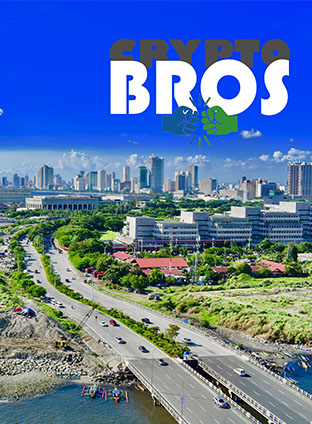
What is a DAO?
A “Decentralized Autonomous Organization,” or DAO, is an autonomous organization run by the community. Smart contracts establish the underlying laws and carry out the chosen course of action. At any time, proposals, votes, and even the code itself may be openly reviewed by the public.
A DAO is ultimately run exclusively by its individual members, who jointly decide on important project issues including technical advancements and treasury allocations.
In general, community members draft recommendations for the protocol’s future operations before gathering to vote on each one. The rules implemented within the smart contract then accept and enforce proposals that reach a certain degree of agreement.
Under this paradigm, the familiar hierarchical systems found in huge organizations give way to community cooperation. Each DAO member has some amount of control over the protocol.
The alignment of incentives is a feature of this framework’s beauty. In other words, it is in the person’s best advantage to vote honestly and to only accept suggestions that benefit the protocol as a whole.
The value of the tokens that each DAO member owns will rise as a result of greater utilization of a strong, healthy system. As a result, token holders benefit as the protocol does.
How does a DAO operate?
Through the use of smart contracts, the DAO’s rules are set by a core group of community members. These smart contracts spell out the basic rules of operation for the DAO. They are very clear, easy to verify, and open to public auditing so that any potential member may completely comprehend how the protocol is to work at every stage.
The DAO will need to choose how to acquire financing and provide governance once these rules have been properly recorded on the blockchain.
This is often accomplished through the sale of tokens, which the protocol uses to raise money and finance the DAO treasury.
Holders of tokens receive certain voting rights in exchange for their currency, often based on their holdings. The DAO can be deployed after financing is finalized.
At this point, the only way to alter the code is to obtain an agreement among the voting members after it has been deployed into production. This means that the community of token holders alone has the right to change the DAO’s rules; no other party is allowed to do so.
How to participate
When you’ve discovered a project that piques your interest, there are a few different ways to become involved right now. Understanding each DAO’s primary objective is the first step since, in my opinion, not all DAOs operate with the same aim.
Understanding the kind of voting privileges offered to token holders and the kinds of proposals at risk is crucial for DAOs focusing on technical governance.
Some platforms, like Uniswap, allow token holders to vote on how much of the fees that the protocol earns should be divided among themselves. Token owners in other protocols, like Compound, can decide how these protocol fees will be allocated to system updates and issue repairs.
With this strategy, anybody who is ad hoc interested in the project or a freelancer may join and be paid for their labor through DAO grant-funded initiatives (DAOs regularly post these sorts of ad hoc projects on their Discord server).
For other DAOs, the emphasis is more on treasury pooling and allocation than on control over the technical components of the protocol.
For instance, SharkDAO operates largely to enable the pooling of individual token holders’ assets in order to purchase costly uncommon NFTs (in this example, the objective is to purchase Nouns, which may sell for far over $250,000). This strategy offers individuals brand-new chances to benefit from the strength of a pool of resources that are used together.
The transparency of a DAO is one of the main lessons to be learned from this. Each proposal’s specifics are easily accessible, voting history is continually logged, and even individual token holders’ voting histories may be seen.
People with an entrepreneurial mindset can freely make suggestions to help steer the future development of a protocol. DAOs frequently ask the community to create intriguing ideas through grant-funded projects.
Participation in DAO varies in intensity. You have the option to join the DAO’s Discord and work on genuine projects where you are paid for your participation; you may choose to swap into governance tokens and pay attention to Snapshot votes; and you can even invest into DAOs of interest by networking at conferences. You get to decide how engaged you want to be.
A few DAOs to look into
DAOhaus: DAOhaus is a no-code platform for establishing and maintaining DAOs. The neighborhood owns and runs it. Look no farther if you want to launch your own DAO or explore the diverse environment.
MakerDAO: By voting on modifications to the Maker protocol, you may participate in governance of the system that launched the first impartial stable coin in the world, DAI.
RaidGuild: This service-based DAO has a strong Web3 presence and was born out of the MetaCartel network. The guild is searching for top talent to keep killing product demons, so if you’re wanting to offer up your programming, marketing, or design abilities, they would appreciate it.
Proof Of Humanity: To distribute Universal Basic Income (UBI) tokens to confirmed humans on-chain, this sybil-resistant record of humans employs social verification and Kleros’ courts. Start with this democratic DAO if you want to join the justice movement.
Opolis: For the independent worker, this member-owned digital employment cooperative provides perks and shared services.
BanklessDAO: Interested in teaching the public about Web3 through content creation? You might be interested in this DAO that focuses on the media.
MolochDAO: This pioneering DAO provides funding to develop the Ethereum ecosystem.
























